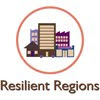
In the Florida panhandle, a host of other findings surfaced. For one, the spill had a compounding effect on a region that has already seen its share of economic woe. As one resident put it, "to be hit with the collapse of the housing market, then the recession, and now the BP oil spill is just a perfect storm of events that is killing our community."
Commercial and recreational fishing has been devastated (from perception just as much as the oil itself), tourism has nosedived (after initial projections for 2010 looked promising) and small businesses continue to suffer.
Recommendations to county stakeholders during the initiative were many. Below, however, are a few that could pertain to any community prone to disaster-related events:
• Create a formal business recruitment, retention and expansion strategy
• Work with educational institutions (community college, vocational schools, etc) to develop curricula that support the major employers of the region
• Devise methods of diversifying employment base and better capitalize on regional assets
• Develop a brand for your region/community and market the brand in cooperation with your stakeholders
• Create a plan to benchmark municipal energy/utility costs and develop a strategy to reduce those costs through efficiency improvements, retrofits and weatherization programs
• Problems in the community are exponentially compounded by disasters -- know your short-comings to attracting new employers (antiquated infrastructure, poor education system, access to recreation, etc) and work toward improving on them
Now that the well is permanently capped, spill-impacted counties can begin the recovery process in earnest. In addition to filing for lost revenues through the process for private citizens and businesses, there are also several million dollars in competitive grants being offered by the Economic Development Administration and other federal agencies for local governments adversely affected by the spill.
One can only hope that the resilience of these tourism and fishing dependent communities is as strong as their resolve to flourish once again.





